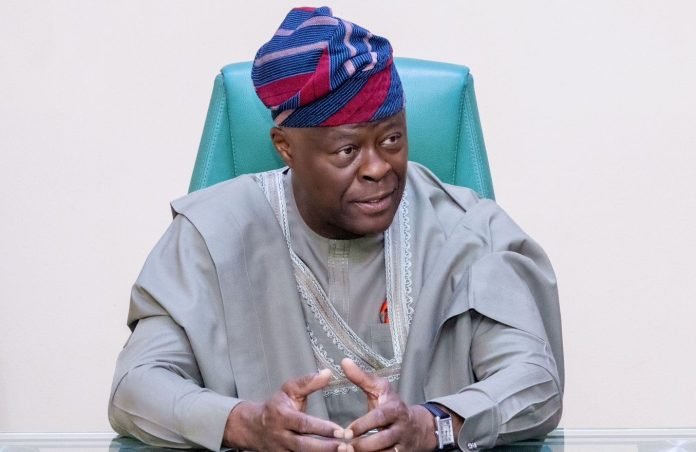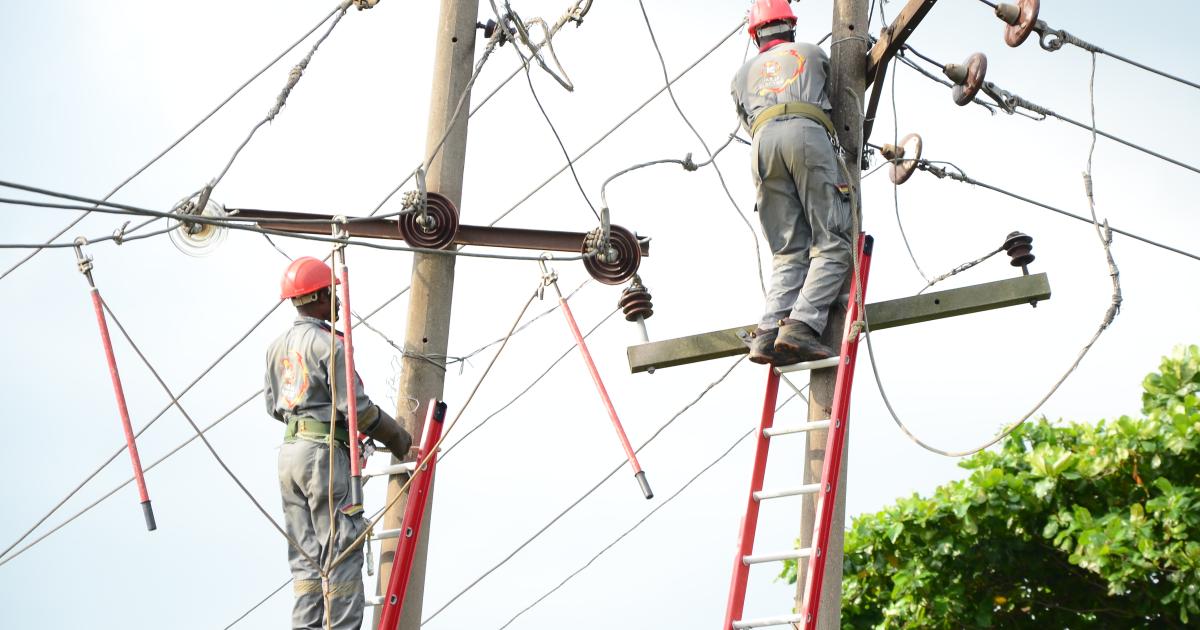Nigeria’s Finance Minister and Coordinating Minister of the Economy, Mr. Wale Edun, says allocations to states have surged by over 111%, describing the development as a major shift in Nigeria’s fiscal fortunes.
He said the windfall means “states are now awash with cash”, positioning them to drive real growth and better service delivery at the grassroots.
The minister spoke at the 31st Nigerian Economic Summit (NES31) in Abuja during a session titled “The Reform Imperative: Building a Prosperous and Inclusive Nigeria by 2030.”
Reforms Free 5% of GDP
Edun credited the leap in allocations to the unification of exchange rates and the removal of fuel subsidy, two of the most daring reforms of the Tinubu administration.
He said the measures have freed up about 5% of Nigeria’s GDP into the Federation Account — funds now flowing directly to the states.
According to him, the reforms have not only stabilized fiscal flows but also restored confidence in Nigeria’s revenue management.
Edun disclosed that the Federal Government had reached an agreement with the National Assembly to ensure timely budget implementation and restore discipline to the fiscal calendar.
“No more extensions of budgets into the next year. That confusion ends now,” he said.
He explained that a return to consistent budget execution is key to transparency, better project delivery, and credible public expenditure tracking.
New Borrowing Mix, New Vision
On debt strategy, Edun said Nigeria is now shifting from reliance on Eurobonds and other external loans toward domestic instruments like Sukuk, Green Bonds, and Diaspora Bonds.
He said this new borrowing mix would deepen local participation while aligning national financing with the country’s Sustainable Development Goals (SDGs).
The Minister also revealed a new milestone in transparency: the Federal Government only gained full visibility of its accounts with the Central Bank of Nigeria (CBN) on August 1, 2025.
“We are determined to bring all government funds into visibility. A lot of money is still lying outside the CBN,” he said.
To strengthen accountability, the government has launched a federal billing system that tracks all payments for goods and services, ensuring every transaction is traceable and accurately captured.
DMO: Focus on Revenue, Not Just Debt
Director-General of the Debt Management Office (DMO), Ms. Patience Oniha, backed Edun’s reforms, noting that Nigeria’s debt remains sustainable but that the real challenge lies in raising revenue.
She said Nigeria’s debt-to-GDP ratio stands at about 40%, still below the international benchmark of 70% for countries in Nigeria’s category.
However, she warned that the debt service-to-revenue ratio is where the strain lies.
“When too much revenue goes to debt service, little is left for development,” she said.
Oniha urged a shift in focus from borrowing size to revenue expansion. “The key is growing revenue. When revenues rise, borrowing slows, and we can fund projects without strain,” she added.
She noted that all debt provisions are now integrated into the Medium-Term Expenditure Framework (MTEF) and the national budget, ensuring predictability and transparency in Nigeria’s debt strategy.
Nigeria Eyes $1 Trillion GDP by 2030
Minister of Budget and National Planning, Sen. Atiku Bagudu, said Nigeria’s next National Development Plan (NDP 2026–2030) is targeting a $1 trillion economy by 2030.
He said the target will be guided by the Nigeria Agenda 2050 and aims for an average annual growth rate of 8.78%, with manufacturing contributing 17.18% of GDP and exports accounting for 24.78% by the end of the decade.
“The process will be participatory and inclusive. We will involve the private sector, political parties, civil society, and labour unions,” Bagudu said.
He added that the Renewed Hope Ward-Based Development Programme will be one of the plan’s key drivers — “a people-centred initiative designed to ensure that ordinary Nigerians directly feel the impact of reforms.”
$2 Billion Broadband Project Takes Off
Also speaking, Minister of Communications, Innovation and Digital Economy, Dr. Bosun Tijjani, revealed that the Federal Government is mobilising 49% of the financing for Nigeria’s $2 billion fibre optic network project, with the private sector funding the rest.
The project, he said, aims to connect every state, local government, and ward with fibre infrastructure, unlocking the nation’s digital potential.
“For Nigerians to be connected, we must invest in fibre optic networks. The government is bringing 49%, and the private sector will bring the rest,” Tijjani said.
According to him, improved broadband access can lift Nigeria’s GDP by 2.5% for every 10% increase in connectivity.
He added that 11 states have already removed Right of Way (RoW) charges, easing deployment.
Tijjani said the government is also investing in Artificial Intelligence (AI) and innovation policies to make Nigeria a digital hub in Africa.
IHS Nigeria CEO, Mohamad Darwish, added that bridging Nigeria’s digital divide will require “massive investments in broadband, innovation, and talent.”
NESG Warns on Jobs and Productivity
Chairman of the Nigerian Economic Summit Group (NESG), Niyi Yusuf, urged government and private actors to make job creation the core of economic reform.
“We must move from stabilisation to transformation — embedding reforms that create jobs, drive growth, and lift every Nigerian,” he said.
The NESG estimates that Nigeria must create at least 4.5 million jobs annually for the next five years to tame unemployment and prevent a worsening labour crisis.
A new NESG report titled “From Hustle to Decent Work: Unlocking Jobs and Productivity for Economic Transformation in Nigeria,” warned that Nigeria’s working-age population could hit 168 million within the decade.
Without urgent reform, the report said, millions risk being trapped in “low-skill, low-pay, and vulnerable work.”
NESG Senior Economist Wilson Erumebor said the crisis has gone beyond numbers:
“This is not just a labour market issue. It is a development emergency,” he warned.
With fiscal reforms in motion and record cash flowing to states, the question now is: Will this newfound liquidity translate into real development? Or will it — like in the past — disappear into bureaucracy, patronage, and waste?
Rate, Like 👍, Comment 💬, Share this article, Follow us on our social media handles, and Submit your own story to get featured and earn rewards!







